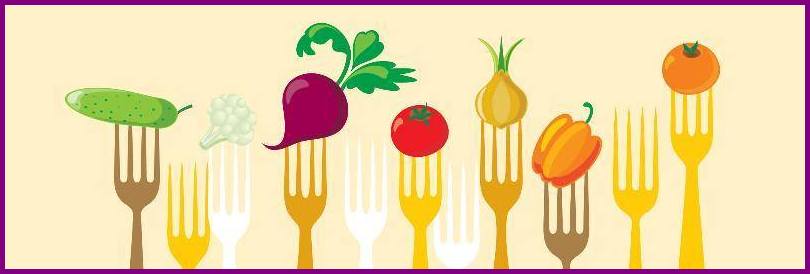INTRODUCTIONS

Kaycee Morison:
I am a third year UBC, Food, Nutrition and Health Major student with an interest in sports nutrition. I am originally from Bragg Creek: a small town located on the outskirts of Calgary, Alberta. Growing up, sports played a major role in my life, whether it was when I was running cross-country, track or playing soccer. As a result, good health and nutrition were critical in ensuring optimal performance. This sparked an interest in foods that are beneficial for muscle growth and retention. In the past I have worked for Nutrikids, a Vancouver-based organization that implements food and nutrition related lessons to elementary students in the Vancouver area. I have also attended Eat2Run training and workshops that demonstrate meal planning and dietary choices specifically targeted for athletes. I enjoy working with others and believe that by working with the Hastings Sunrise community I will be able to strengthen my connections to the Vancouver area. Outside of school, I enjoy running, playing soccer, cooking and snowboarding during the winter months.
Kasha Foster:
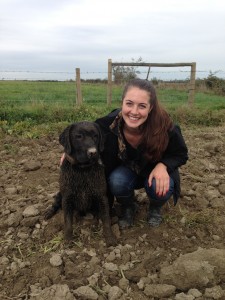 I am in my third year studying in the Global Resource Systems program within the Land and Food Systems (LFS) faculty with a focus on sustainable agriculture and food systems. I grew up in North Vancouver and agriculture has always been an important part of my life. LFS has helped me appreciate the importance of all aspects that influence our complex world food system, and as a result, I have been able to expand my ability to understand the foundations of our food system from multiple disciplinary angles. In the past I have worked with the Strathcona Community Center’s Garden Project to improve children’s education of gardens and nature during the after-school programs offered at the center. I have also worked with the North Shore Neighbourhood House (through the Edible Garden Project) with the weekly Food Hub and the BC Farmers’ Market Nutrition Coupon Program (BCFMNCP). I thoroughly enjoy working with members of communities across Vancouver and cannot wait to learn more about the Hastings Sunrise community. Apart from learning about the food system, I enjoy gardening, cooking, jogging, volleyball, playing with my dogs, and just being outside.
I am in my third year studying in the Global Resource Systems program within the Land and Food Systems (LFS) faculty with a focus on sustainable agriculture and food systems. I grew up in North Vancouver and agriculture has always been an important part of my life. LFS has helped me appreciate the importance of all aspects that influence our complex world food system, and as a result, I have been able to expand my ability to understand the foundations of our food system from multiple disciplinary angles. In the past I have worked with the Strathcona Community Center’s Garden Project to improve children’s education of gardens and nature during the after-school programs offered at the center. I have also worked with the North Shore Neighbourhood House (through the Edible Garden Project) with the weekly Food Hub and the BC Farmers’ Market Nutrition Coupon Program (BCFMNCP). I thoroughly enjoy working with members of communities across Vancouver and cannot wait to learn more about the Hastings Sunrise community. Apart from learning about the food system, I enjoy gardening, cooking, jogging, volleyball, playing with my dogs, and just being outside.
Mitra Nowroozi: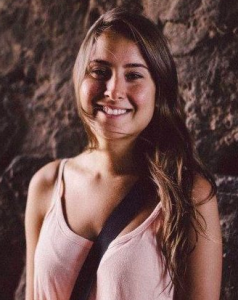
I am a 3rd year Food, Nutrition and Health student at UBC. My main interests lie within maternal, fetal, and pediatric nutrition both in Canada and internationally. The Land, Food & Community Series courses have helped me branch out from my predominantly lecture-based major into the world of interdisciplinary systems and community engagement. It has broadened the context around food and nutrition to include food security, sovereignty and access – important concepts I had not considered prior to the series. I have held many work and volunteer positions surrounding food and cooking. One example is through SFU Enactus, developing and presenting nutrition workshops and hands-on cooking tutorials to low-income, often single mothers at Kiwassa Neighbourhood House and The Salvation Army. I have also had the privilege to teach and cook with children through The Dirty Apron Cooking School. Outside of school, I love spending time with my family, going hiking, rock climbing, watching space movies and learning the piano.
Sarah Bond:
This is my 3rd year a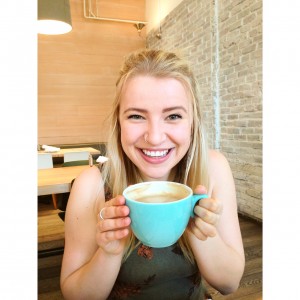 s a student in Land and Food Systems at UBC, and I am focusing my studies on nutrition and food security. I am originally from a small farming town in eastern Ontario, where I have previously worked with community food initiatives, including an internship with Nourish Project. I have organized and ran food literacy workshops aimed at populations vulnerable to food insecurity, volunteered frequently at a student run non-profit café, and most recently worked at the UBC Centre for Sustainable Food Systems with the children’s programming. I hope that this project will strengthen my knowledge in food system issues that are relevant to Vancouverites, and explore techniques to better utilize the assets within the communities we work with. Aside from schoolwork, I am often found practicing or performing with my dance team, soaking up any hint of sunshine, or reading a good book.
s a student in Land and Food Systems at UBC, and I am focusing my studies on nutrition and food security. I am originally from a small farming town in eastern Ontario, where I have previously worked with community food initiatives, including an internship with Nourish Project. I have organized and ran food literacy workshops aimed at populations vulnerable to food insecurity, volunteered frequently at a student run non-profit café, and most recently worked at the UBC Centre for Sustainable Food Systems with the children’s programming. I hope that this project will strengthen my knowledge in food system issues that are relevant to Vancouverites, and explore techniques to better utilize the assets within the communities we work with. Aside from schoolwork, I am often found practicing or performing with my dance team, soaking up any hint of sunshine, or reading a good book.
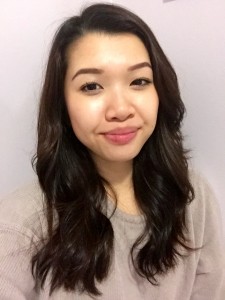 Grace Tan:
Grace Tan:
I am a 3rd year Nutritional Sciences student and was born and raised in Vancouver. My passion has always been in community work and I have been fortunate enough to spend the past few years enjoying opportunities that combined my interest in nutrition with my love of people. I have worked closely with the West 1 Community Schools Team leading after school cooking programs aimed at supporting vulnerable children, and acting as Kitchen Coordinator at their Healthy Eaters and Leaders Summer Camp where the campers gain nutrition education through experiential learning opportunities such as cooking and gardening. I believe it is important to build positive relationships with food at an early age so that we are nurturing healthy, happy, and responsible food citizens for the future. When I am not doing any of these previously mentioned activities, I like to fill my time trying new restaurants, cooking, and spending time with my loved ones.
“I became quite proud of our project… because, you see, at least we fed the hippos!” (E. Sirolli, 2012).
The quote above is an excerpt from the TED Talk “Want to help someone? Shut up and listen!”, by Ernesto Sirolli. Sirolli made this statement with respect to the failure of his agriculture project in Zambia (instead of feeding the community, the crops were eaten by hippos), and how he believes the project’s of other NGOs in the region failed even worse. Sirolli is trying to make the point that listening to the needs of the community before attempting to help them is key to success. We found this quote particularly insightful because as mentioned above in our bios, we have all worked with community projects and understand the barriers to successfully achieving the results we set out to achieve prior to the project. We also have been learning about Asset-Based Community Development (ABCD) (discussed later in this post), which aligns with this video and has given us our own passion to help the Hastings Sunrise Community by listening to their needs and wants.
WHY HASTINGS SUNRISE?
As a group, we chose the Hastings Sunrise Community Food Circles project because we believe it will strengthen our interdisciplinary skills as well as our connection to the Vancouver community. We believe that by participating in this project we will be able to develop our food security knowledge by reflecting on past personal experiences and by integrating our education from various food related disciplines. Combined with our interests in promoting food security, nutrition and sustainable agriculture, the Hastings Sunrise project is ideal because it encompasses all of our passions into one engaging experience. Those of us involved in food and nutrition will be able to use our nutrition and health knowledge to determine what food is suitable for ensuring healthy individuals in the Hastings Sunrise area. While, those in food security and global resources disciplines will be able to use their knowledge in developing sustainable food practices that are environmentally conscious. Within this project, our goal is to further develop our communication and interpersonal skills so that we can implement these skills into future careers. Furthermore, we intend to gain a better understanding of how food insecurity affects those in the Hastings Sunrise area and what can be done to combat this issue. We can do this by building new relationships within the Vancouver community and finding what food can be locally sourced. By doing this, we hope to improve access to affordable, sustainable, nutritious and culturally appropriate food for individuals living in the Hastings Sunrise community.
WHAT IS THE HASTINGS SUNRISE COMMUNITY FOOD NETWORK?
Hastings Sunrise Community Food Network (HSCFN) is a food systems initiative focused on the area of Hastings Sunrise in North East Vancouver, which has emerged from the city-wide group, Vancouver Neighbourhood Food Network (“Who We Are”, 2015). This community level food network was formed in 2012 in order to connect key players in the food system within this area, and therefore strengthen individual initiatives such as community gardens or food programs (“Who We Are”, 2015). Objectives of the network include connecting and supporting its residents towards accessing affordable and healthy food within their community. Through our work with Hastings Sunrise, we will aim to identify the barriers of accessing food by attending both the training of facilitators and the facilitator-run focus groups with the residents. There, we will observe commonly expressed barriers and issues that residents face with regards to accessing food, attending programs and we will compile our data from the focus groups run atWHAT five different agencies, Hastings-Sunrise, Kiwassa Neighbourhood House, Frog Hollow Neighbourhood House, Thunderbird Community Centre, and The Warehouse and produce both an individual and collective report on these agencies. This report will outline these barriers and general themes that arise from the focus groups and suggest ways to support members in reducing these food gaps. HSCFN can then utilize this information to direct their support and funding, and be able to better address the needs of the community as a whole, while also attending to the diversity between neighbourhoods (J. MacKinnon, personal communication, January 18th, 2016).
WHAT HAVE WE DONE SO FAR?
This week we met with Joanne MacKinnon, the Food Network Coordinator for the Hastings Sunrise Community. Prior to our group’s first meeting with Joanne we were uncertain about what roles we would have in this community project because we were slightly unclear about the project itself and there appeared to be many opportunities for involvement available to our group. Joanne gave us a thorough overview of the different components involved in the Hastings-Sunrise Community Food Network and provided us with a better understanding of the project goal: what are the barriers for community members to accessing healthy food and how can we better serve these members with respect to those barriers? The focus groups and final reflection of the Food Circle project is in-line with the Asset-Based Community Development (ABCD) because we are tasked with assisting community members (the facilitators) with engaging and listening to other community members who are categorized as part of the ‘hard-to-reach’ populations. Instead of the staff of the Food Circle trying to fix the issues that they are encountering by themselves, they have chosen to reach out and ask the participants and non-participants in the community what they want to see and how the program could improve.
HOW DOES THIS RELATE TO WHAT WE ARE LEARNING IN LFS 350?
As discussed in the TED Talk “Want to help someone? Shut up and listen!”, by Ernesto Sirolli, listening to the community you are trying to help is a very important step in offering aid (E. Sirolli, 2012). The community responded with requests for workshops for activities such as cooking or gardening, but despite efforts to engagement for all community members, the workshops still did not reach every target population. Thus, the Food Circles steering committee is taking a step back and asking community members at focus group meetings if people wish to be helped at all, and if they do, then how can we help achieve better access to healthy food (E. Sirolli, 2012). These focus group sessions take on an asset-based approach rather than deficit-based by following several guiding principles of ABCD, such as actively listening to community members, allowing them to contribute, and bringing facilitators and focus groups from all five of the agencies participating in the Food Network.
References:
Who We Are. (2015). Hastings Sunrise Community Food Network. Retrieved January 20, 2016, from http://hscfn.com/who-we-are/
